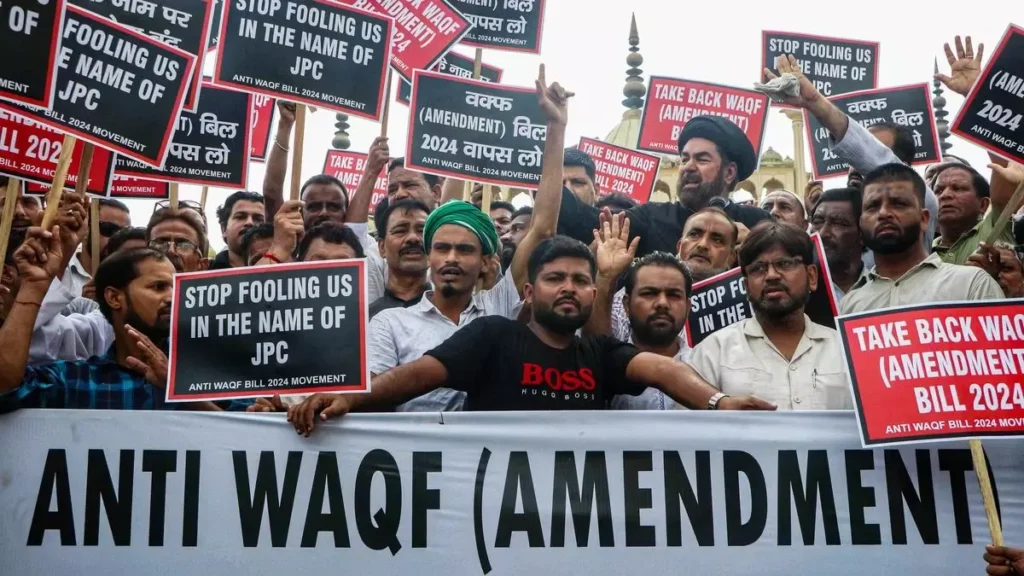Massive protests held in Kolkata, Chennai, and Ahmedabad on Friday as thousands took to the streets after weekly prayers, voicing strong opposition to the Waqf Amendment Bill passed by Parliament this week. In Kolkata, a large crowd waved the national flag and held posters reading “We reject Waqf amendment” and “Reject Waqf Bill.” Many of these protests were organized by the Joint Forum for Waqf Protection, according to ANI.
In Ahmedabad, tensions were high as police tried to remove elderly protesters sitting on the road, as seen in a video shared by ANI. Similar demonstrations were held in Chennai, where actor Vijay’s Tamilaga Vettri Kazhagam (TVK) had called for a statewide protest. TVK workers gathered in Chennai, Coimbatore, and Tiruchirappalli, shouting slogans like “Reject the Waqf Bill” and “Do not take away Muslims’ rights.”
Tamil actor-politician Vijay, who is being seen as a rising contender ahead of next year’s Assembly election, criticized the Waqf Bill, calling it “anti-democratic.” He said its passage raises concerns about India’s secular foundation.
The protests in Bengal have intensified political tensions ahead of next year’s elections, with Chief Minister Mamata Banerjee assuring that Muslims in the state will not lose their lands. She accused the BJP of attempting to divide the country, a claim echoed by Congress, and stated that the bill would be repealed once a non-BJP government takes charge.
Many protesters fear that the new Waqf laws could be applied retroactively, affecting existing properties. However, Union Minority Affairs Minister Kiren Rijiju, backed by Home Minister Amit Shah, clarified in Parliament that the law will only be applied moving forward.
The amendments to the Waqf laws, which govern Muslim charitable properties, were passed after nearly 20 hours of intense debate. While the opposition criticized it as “anti-Muslim,” the ruling party hailed it as a “historic reform.”
The Waqf Amendment Bill now only needs President Droupadi Murmu’s approval to become law. It was passed in the Lok Sabha with 288 votes in favor and 232 against, and in the Rajya Sabha with 128 votes and 95 against.
The bill introduces key changes, such as adding two non-Muslim members to state Waqf boards and the central Waqf council. It also requires donors to confirm they have been practising Muslims for at least five years.
Many Muslims and opposition leaders worry that the government could take control of Waqf boards, but Union Minister Kiren Rijiju denied this, saying Waqf management will remain with the Muslim community.
The bill led to intense debates in Parliament. Congress leader Sonia Gandhi called it an attack on the Constitution and accused the BJP of dividing society. She also claimed the bill was pushed through the Rajya Sabha unfairly.
The BJP demanded an apology, but Rijiju defended the process, stating the Rajya Sabha debated the bill for over 17 hours, while the Lok Sabha discussion lasted more than 12 hours.
You might also be interested in – Did the Waqf Bill really aim for reforms — or was it BJP’s show of strength again?

